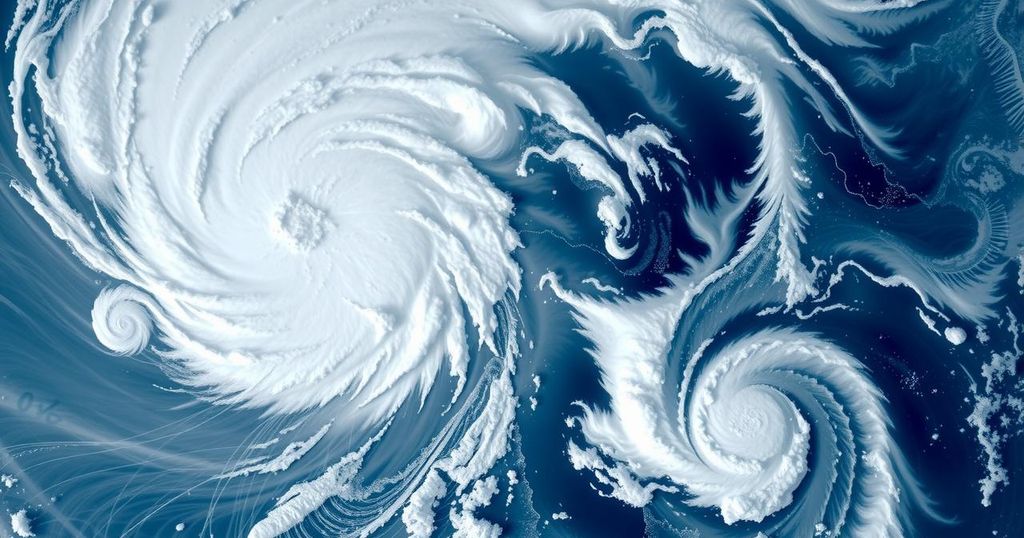Cyclone Chido, a Category 4 storm, struck Pemba, Mozambique on December 15 after devastating Mayotte. The cyclone’s winds surpassed 200 km/h, affecting approximately 1.7 million people. Humanitarian agencies are mobilizing resources to address immediate needs and coordinate disaster response efforts in the impacted regions.
Cyclone Chido, classified as a Category 4 storm, made landfall in Pemba, the capital city of Mozambique’s Cabo Delgado province, on December 15. Prior to this, the cyclone caused significant destruction in Mayotte, a French overseas territory. Reports indicate that Chido’s winds reached speeds exceeding 200 kilometers per hour, leading to catastrophic conditions across regions in both Mozambique and Mayotte.
The Malawi Red Cross confirmed that Cyclone Chido initially affected northern Mozambique, extending its impact to Southern Malawi. The organization has mobilized its resources to assist local communities in preparation for anticipated heavy rainfall and flash floods. Simultaneously, the International Organization for Migration (IOM) reported that approximately 1.7 million individuals have been affected by the cyclone, and collaboration with government entities is underway to address emerging needs and coordinate response efforts effectively.
UNICEF Mozambique expressed growing concerns regarding the cyclone’s impact on an already vulnerable population, emphasizing the importance of immediate and long-term disaster response plans. In Mayotte, the cyclone resulted in widespread devastation, with reports from extreme weather analyst Colin McCarthy highlighting the catastrophic destruction of neighborhoods and possible loss of life.
The situation in Mayotte is particularly severe, as noted by Prefect Francois-Xavier Bieuville, with estimates suggesting that hundreds, if not thousands, may have perished as a result of Chido’s onslaught. Due to cultural practices in the predominantly Muslim community, determining an accurate death toll poses significant challenges, as burials occur within 24 hours of death.
Cyclone Chido is part of a range of severe weather patterns affecting regions across the Indian Ocean. The cyclone emerged as a powerful storm in early December and rapidly intensified, creating significant challenges for coastal communities. Mayotte, with its relatively sparse population and limited infrastructure, faced unprecedented weather conditions, while neighboring Mozambique has been historically vulnerable to tropical storms and cyclones. The implications of such natural disasters underscore the need for comprehensive disaster management strategies in affected regions.
In conclusion, Cyclone Chido has had a profound impact on both Mayotte and Mozambique, highlighting the devastating effects of natural disasters on populations that are already vulnerable. In response to this crisis, humanitarian organizations are working diligently to assess needs and provide support. The ongoing evaluations will be crucial in creating effective disaster response strategies to mitigate the effects of future cyclones.
Original Source: www.downtoearth.org.in







